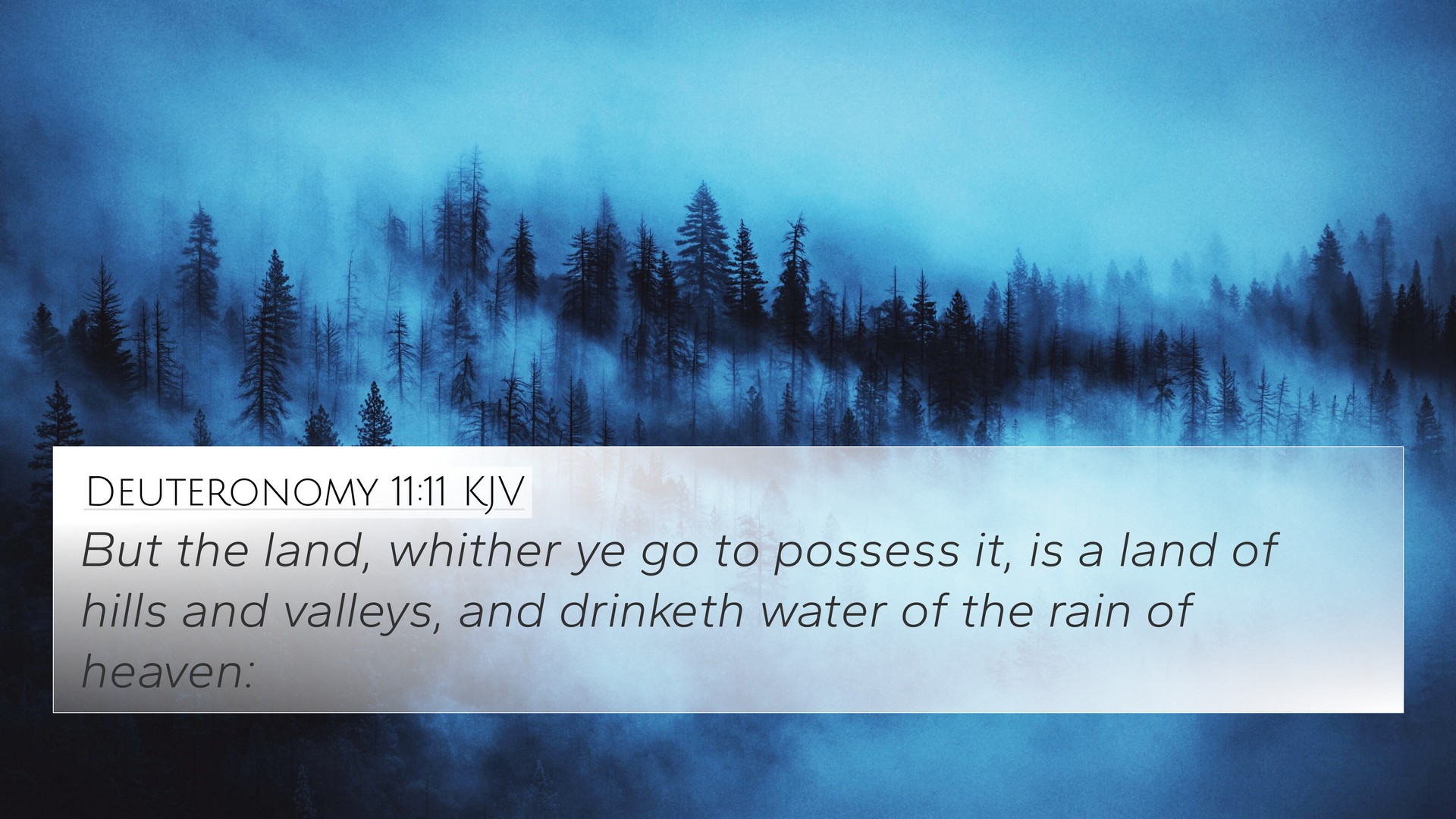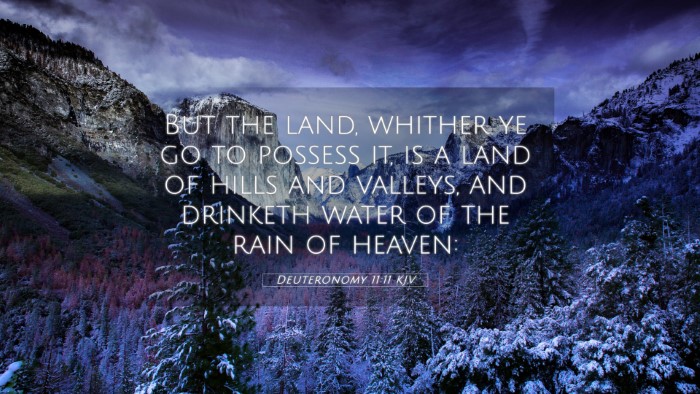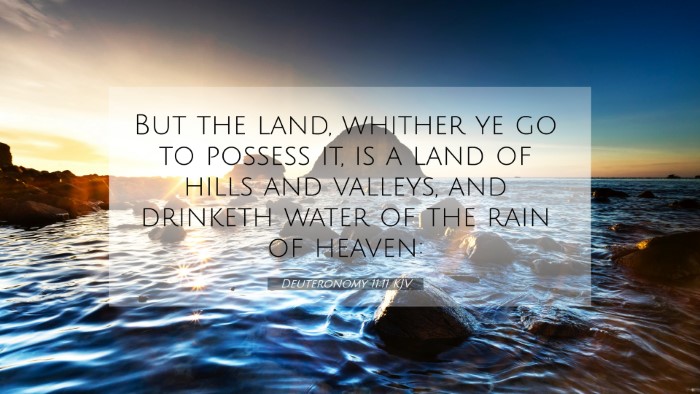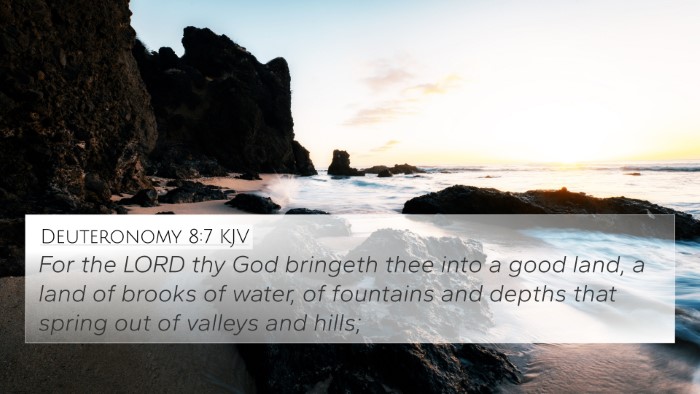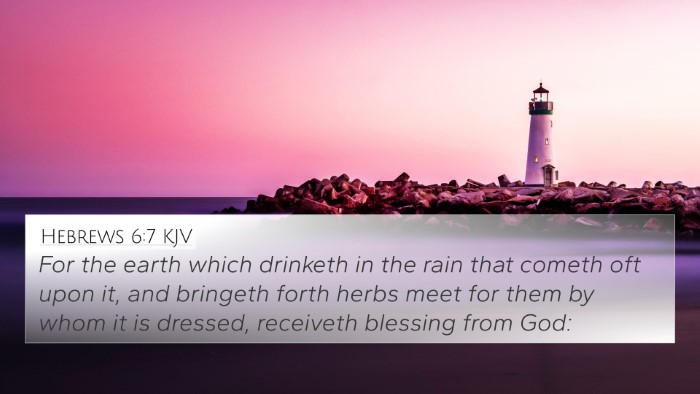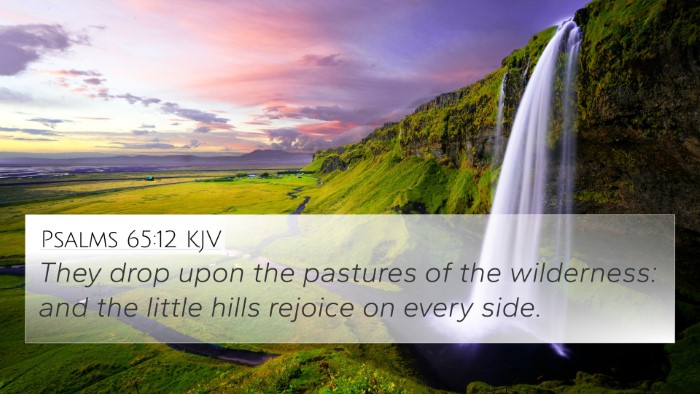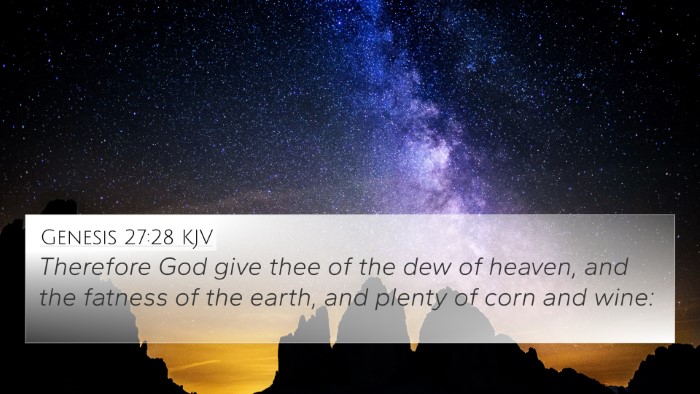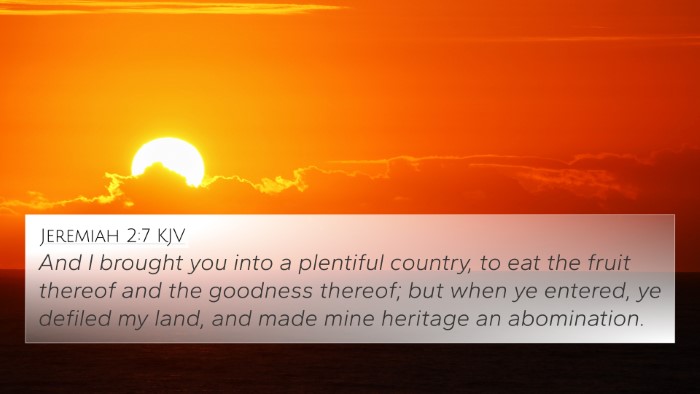Understanding Deuteronomy 11:11
Bible Verse: Deuteronomy 11:11
“But the land, to which you cross over to possess it, is a land of hills and valleys, which drinks water from the rain of heaven.”
This verse is part of a broader discourse where Moses addresses the Israelites, urging them to remember the blessings that await them in the Promised Land. The verse highlights the unique characteristics of the land they are about to enter.
Summary of Commentary Insights
Various public domain commentaries provide valuable insights into this verse:
- Matthew Henry's Commentary: Emphasizes God’s providence in providing for his people. The verse illustrates the richness of the land—unlike Egypt, which relied solely on irrigation, the Promised Land receives water directly from heaven. This represents God's direct blessing and care for His people.
- Albert Barnes' Notes: Suggests that the land’s topography (hills and valleys) symbolizes diversity in resources and terrains, leading to a bountiful harvest. Barnes highlights the importance of acknowledging the divine source of these blessings, as they come from God's favor and grace.
- Adam Clarke's Commentary: Points out that the Israelites were to recognize the contrast between their former bondage in Egypt and the freedom of their new life. Clarke notes that the Promised Land is conducive to growth and sustenance, supported by the rain from heaven, signifying God’s continuous provision.
Bible Verse Connections
Deuteronomy 11:11 connects with several other scripture references that enhance the understanding of its message:
- Exodus 3:8: God promises to bring the Israelites to a "good and spacious land.”
- Deuteronomy 8:7-9: Describes the Promised Land flowing with resources, emphasizing its richness.
- 2 Chronicles 7:13-14: Reminds us that the Lord can withhold rain, indicating His power over the land’s fertility.
- Psalm 65:9-13: Celebrates God's provision for the earth and its inhabitants, illustrating the connection between spiritual blessing and physical sustenance.
- Matthew 5:45: Jesus refers to rain falling on the just and the unjust, showing God's impartial provision.
- Hebrews 6:7: Discusses the land that drinks in the rain often falling on it, paralleling the blessings described in Deuteronomy.
- John 4:10: Jesus speaks of a "living water," inviting readers to consider the spiritual implications of God's provision.
Thematic Insights
The verse serves as a reminder of several key themes in Scripture:
- Provision: The relationship between the land and God's provision highlights how believers are called to trust in divine resources.
- Contrast: The transition from Egypt to the Promised Land symbolizes spiritual growth and freedom.
- Divine Favor: Recognizing that the blessings of the land come from God reinforces the need for gratitude and faithfulness.
Practical Applications
As believers study this verse, here are some practical takeaways:
- Trust in God's Provision: Just as the land drinks from the rain of heaven, believers are encouraged to trust in God's ability to provide for their needs.
- Thankfulness for Blessings: Acknowledge the nature of blessings as coming from God, fostering a spirit of thankfulness.
- Spiritual Growth: Embrace the journey from bondage (sin) to freedom (salvation) and recognize the transformative power of God's leading.
Conclusion
Deuteronomy 11:11 serves as a powerful reminder of the richness of the Promised Land and the blessings that come from God. Through a careful study of cross-references and thematic connections, believers can gain a deeper understanding of God's provision, favor, and the call to be grateful stewards of these blessings. Engaging with commentaries from sources like Matthew Henry, Albert Barnes, and Adam Clarke enriches one's interpretation of this verse, helping to draw meaningful connections across Scripture.
In summary, utilizing a Bible cross-reference guide is an effective tool for exploring and understanding the intricate connections between Bible verses, further nurturing one's faith and scriptural knowledge.
